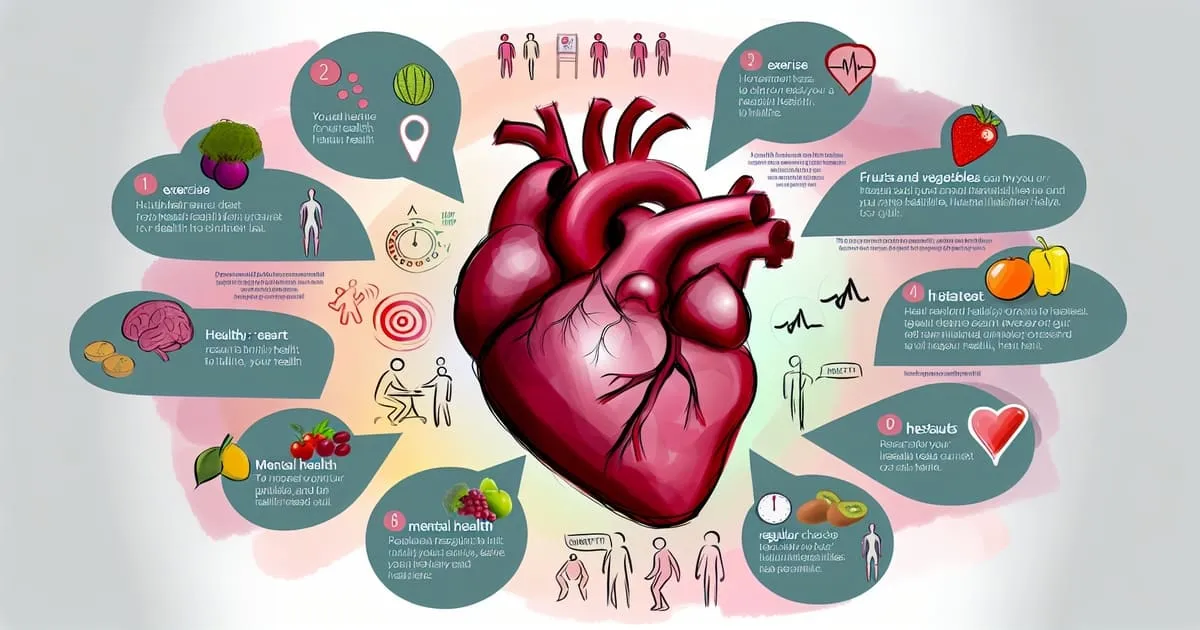Human Heart Facts: 10 Essential Insights for a Healthier Life
The human heart is an amazing machine, beating around 100,000 times a day to pump blood throughout your body. It’s like the engine room of your life, keeping everything running smoothly from head to toe. But there’s more to this incredible organ than just its day-to-day duties. From its ability to grow stronger with exercise to the surprising fact that it can continue beating even when separated from the body, the human heart holds secrets that are nothing short of astonishing. Curious about what makes your ticker tick? Scroll down for some heart-stopping facts that’ll make you see this vital organ in a whole new light.
The average heart beats 100,000 times a day
Imagine your heart, a small but mighty engine, working tirelessly from the moment you’re born until your last breath. It’s an incredible organ that doesn’t take breaks, powering through day and night without a hint of rest. Now, let’s dive into some fascinating facts about this relentless worker.
Every single day, your heart beats around 100,000 times. To put it in perspective, that’s like hitting the refresh button once every 0.86 seconds non-stop for 24 hours! This constant activity is what keeps us alive and kicking; it pumps blood throughout our body to supply vital nutrients and oxygen to all our cells.
What’s even more impressive is how this translates over time:
- In just one minute, your heart beats about 70 times.
- Multiply that by the minutes in a day (1,440), and you get approximately 100,800 heartbeats per day!
This continuous action showcases not only the strength of the human heart but also its endurance. Imagine running a marathon every single day without stopping — that’s essentially what your heart does on a cellular level.
A woman’s heart beats slightly faster than a man’s heart
Did you know a woman’s heart beats faster than a man’s? This fact might seem surprising, but there’s a simple explanation behind it. Women’s hearts are generally smaller in size compared to men’s. Because of this size difference, their hearts need to work a bit harder to pump blood throughout the body efficiently.
On average, a woman’s heart beats 8 to 10 times more per minute than a man’s. This rate is especially noticeable when both are in a resting state. Imagine two clocks ticking side by side, with one ticking just slightly faster than the other; that’s how women and men’s heart rates compare.
This quicker pace isn’t about fitness levels or health differences between genders. It’s primarily due to physical distinctions—specifically, the heart’s size and its task of circulating blood effectively within each body type.
Understanding these differences is crucial not only for medical professionals but also for individuals monitoring their own health. Recognizing what is normal for your gender can help identify any potential issues early on if your heartbeat significantly deviates from these averages without clear reason.
The heart pumps about 2,000 gallons of blood every day
Imagine your heart working tirelessly, pumping an impressive 2,000 gallons of blood every single day. That’s enough to fill a small swimming pool in just a week! This fact alone highlights the incredible efficiency of the human heart as a pump.
Every minute, this vital organ circulates blood through your body three times. It’s like having a super-charged engine inside you that ensures oxygen and nutrients are delivered swiftly to every part of your body. This cycle is crucial for maintaining life and supporting the function of all other organs.
The left side of the heart plays a key role in this process. It receives oxygen-rich blood from the lungs and pumps it out under high pressure through arteries to reach every corner of your body. The pressure created by this action is what we measure when we talk about blood pressure – an essential indicator of our cardiovascular health.
This continuous flow not only sustains life but also demonstrates the heart’s remarkable ability to perform its duties with precision and reliability. Considering its workload, it’s amazing how efficiently the heart operates without rest, reflecting nature’s engineering at its best.
The heart’s electrical system makes it beat
At the core of our heart’s ability to keep us alive is an incredible natural pacemaker known as the SA node. This tiny yet powerful site sends out electrical signals that are vital for life.
These signals travel through the heart, telling its muscles when to contract. Imagine a drum major leading a band; in much the same way, these electrical impulses guide the rhythm of our heartbeat.
What’s truly fascinating is how this system operates entirely on its own. We don’t have to think about making our hearts beat—it just happens, even when we’re asleep or not thinking about it at all.
The main function of this autonomous system allows us to focus on everything else we do throughout the day without worrying about keeping one of our most critical organs working. It’s like having an expert conductor inside your chest ensuring that every section of your heart’s orchestra plays perfectly in time, all without missing a breath or needing any conscious effort from us.
Heart cells can regenerate, but at a very slow rate
New heart cells have the ability to grow, albeit at a snail’s pace. Research suggests that these cells regenerate at a rate of less than 1% per year. This means that by the time you’re 50, only half of your heart’s cells will have been replaced since birth.
The majority of our heart cells are with us from the moment we’re born and remain so throughout our lives. It’s like carrying around a piece of your childhood inside you forever!
Interestingly, when the heart suffers an injury, it kicks its regenerative abilities up a notch. However, this boost is still limited and doesn’t lead to full recovery or replacement of all damaged cells. The body tries its best to repair itself but faces significant limitations in doing so effectively for the heart.
Here’s why this matters:
- Understanding how new heart cells grow can help scientists develop better treatments for heart diseases.
- Knowing that most of our heart cells stay with us from birth highlights the importance of taking care of our hearts from an early age.
- Recognizing that regeneration rates increase after injury gives hope for future research into enhancing this natural process.
Laughter and a positive outlook can be good for your heart
Laughter isn’t just fun; it’s like a workout for your heart. When you laugh, you reduce stress hormones that can harm your heart muscle. Less stress means a happier heart.
But laughter does more than fight stress. It also helps blood flow smoothly through your body. This is because laughing makes the inner lining of your blood vessels work better, promoting healthy blood flow.
Feeling happy and positive doesn’t just make life more enjoyable; it might also protect your heart. People who often feel joy, enthusiasm, and contentment have a lower risk of developing heart disease compared to those who experience negative emotions.
Here’s why:
- Laughing lowers harmful stress hormones.
- It improves the function of blood vessels.
- Positive emotions are linked to healthier hearts.
Think about it this way: when you’re happy or sharing a laugh with friends, not only do you feel great in the moment, but you’re also giving your heart some love.
The heart can continue beating even when it’s disconnected from the body
Imagine a heart, still beating, even after it’s been taken out of the body. This might sound like something from a science fiction movie, but it’s a real phenomenon. It showcases how amazing and self-sufficient our hearts truly are.
The secret behind this lies in the heart’s own electrical system. Unlike other organs that need signals from the brain to work, the heart marches to its own beat—literally. This is possible thanks to special cells called pacemaker cells.
These pacemaker cells generate electrical impulses that trigger heartbeats. That means as long as these cells have oxygen, they keep ticking away, whether inside or outside the body.
This incredible ability of the heart isn’t just an interesting fact; it plays a crucial role during transplant surgeries. Surgeons rely on this autonomy when they transfer hearts from donors to recipients. Observing how hearts can beat independently also helps scientists study how our ticker works and find ways to treat heart diseases better.
Exercise can help lower the risk of heart disease
When you exercise, your heart muscle gets stronger. This means it can pump blood more efficiently throughout your body. Think of it like upgrading an engine for better performance.
Exercise also does wonders for lowering both blood pressure and cholesterol levels. High numbers in these areas are big red flags for heart disease, so getting them down is key to keeping your heart happy.
Moreover, staying active helps keep your arteries flexible and open. This is crucial because stiff or blocked arteries can lead to serious trouble, including heart attacks and strokes.
Here’s a quick breakdown:
- Strengthens Heart Muscle: Like any muscle, the more you use it, the stronger it gets.
- Lowers Blood Pressure & Cholesterol: Regular movement keeps these numbers in check.
- Keeps Arteries Flexible: Ensures smooth blood flow and reduces risk of blockages.
The first successful heart transplant was performed in 1967
In a groundbreaking operation, Dr. Christiaan Barnard led the team that performed the world’s first successful heart transplant in South Africa. This historic event took place on December 3, 1967.
The patient who received this new heart lived for an additional 18 days post-operation. While this might seem short by today’s standards, back then it was a monumental achievement. It demonstrated that transplanting a heart was possible and opened up new possibilities for treating heart disease.
This pioneering surgery paved the way for advancements in cardiac surgery and organ transplantation. Since then, techniques have improved dramatically, increasing both the success rate of transplants and the longevity of recipients’ lives.
Some key points to remember about this landmark event include:
- It marked a significant moment in medical history.
- Showed that with courage and innovation, barriers can be overcome.
- Led to improvements in surgical methods, anti-rejection drugs, and patient care practices.
Heart disease is the leading cause of death globally
Heart disease doesn’t discriminate; it’s the top cause of death around the world. Think of this: nearly one-third of all deaths globally are because of heart issues. That’s a huge number, making it super important for us to understand and take action against.
What puts you at risk? Well, there are a few biggies:
- Smoking is like inviting heart disease over for dinner.
- Carrying extra weight puts pressure on your heart.
- Living a life glued to your couch or chair isn’t doing your heart any favors either.
But here’s some good news – you have the power to fight back! Making changes in how you live can kick these risks to the curb. Here’s how:
- Saying goodbye to cigarettes can be tough but think about the happy, healthy years you’re adding to your life.
- Moving more and sitting less might sound simple, but it works wonders for your heart.
- Eating foods that are friends with your heart (think fruits, veggies, and whole grains) instead of foes (I’m looking at you junk food) makes a big difference too.
And if needed, doctors have medications that can help keep things in check as well.
Frequently Asked Questions
How many times does the average heart beat in a day?
The average heart is quite the athlete, beating around 100,000 times a day. Imagine it doing non-stop push-ups from dawn till dusk!
Is there any difference between a woman’s and a man’s heart rate?
Yes, indeed! A woman’s heart typically beats faster than a man’s. It’s like they’re always in a bit of hurry compared to men.
How much blood does the heart pump daily?
Your heart works hard, pumping about 2,000 gallons of blood every single day. That’s like filling up an entire small swimming pool!
Can the human heart regenerate its cells?
Heart cells do have the power to regenerate but at snail-speed. It’s not exactly Wolverine-level healing but hey, it’s something!
Why is laughter good for your heart?
Laughter and staying positive aren’t just soul food; they’re like a mini workout for your heart too. Keep smiling!
Can the human heart beat outside of the body?
Absolutely! The human heart can keep on ticking even when disconnected from the body—talk about being independent.
What impact does exercise have on your risk of developing heart disease?
Lacing up those sneakers and getting some exercise can greatly reduce your chances of battling with Heart Disease Avenue. Consider it as building an invisible shield around your ticker.







